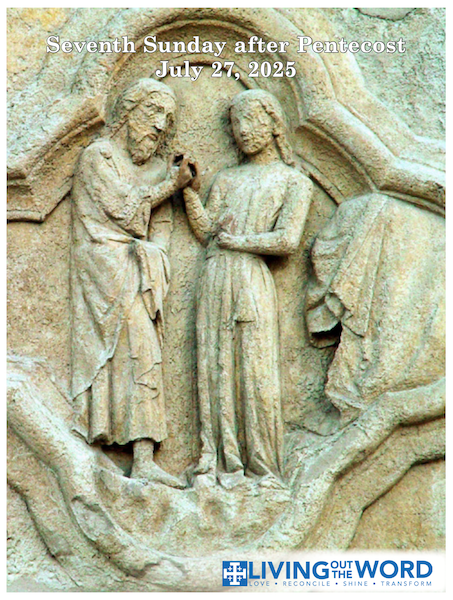Click HERE to download sermon transcript!
Today’s sermon is exploring the biblical prophet Hosea’s challenging narrative. In this narrative, God commands him to marry Gomer, a promiscuous woman. This serves as a metaphorical representation of Israel’s spiritual unfaithfulness. Set in the 8th century BC during the rising Assyrian empire, the text focuses on Hosea’s symbolic marriage and the prophetic naming of his children – Jezreel, Lo-ruhamah, and Lo-ami. Each name communicates God’s displeasure with Israel.
The speaker draws intriguing parallels between Hosea’s story and a Luke passage about prayer. It emphasizes themes of shameless persistence, unconventional obedience, and God’s ultimate compassion. By highlighting how God transforms “nobodies” into “somebodies,” the sermon challenges traditional church norms. It calls for a radical understanding of faith – one that embraces the marginalized and disrupts social conventions. It recognizes that every individual is “beloved” in God’s eyes.
The message ultimately underscores the enduring nature of divine mercy and the potential for redemption, even in the most challenging and seemingly hopeless circumstances.
Click this link for archived sermons on the Podcast Player
“Mercy!”
Seventh Sunday after Pentecost
July 27, 2025
Rev. Dr. Guy D. Griffith
Click HERE to download sermon transcript!
“But down the road, the population of Israel is going to explode past counting, like sand on the ocean beaches. In the very place where they were once named Nobody, they will be named God’s Somebody” (Hosea 1:10, The Message). “[Jesus] was praying in a certain place, and after he had finished, one of his disciples said to him, ‘Lord, teach us to pray as John taught his disciples” (Luke 11:1, NRSV).
Hosea 1:2-10
2 When the Lord first spoke through Hosea, the Lord said to Hosea, "Go, take for yourself a wife of prostitution and have children of prostitution, for the land commits great prostitution by forsaking the Lord." 3 So he went and took Gomer daughter of Diblaim, and she conceived and bore him a son. 4 And the Lord said to him, "Name him Jezreel,[a] for in a little while I will punish the house of Jehu for the blood of Jezreel, and I will put an end to the kingdom of the house of Israel. 5 On that day I will break the bow of Israel in the Valley of Jezreel." 6 She conceived again and bore a daughter. Then the Lord said to him, "Name her Lo-ruhamah,[b] for I will no longer have pity on the house of Israel or forgive them. 7 But I will have pity on the house of Judah, and I will save them by the Lord their God; I will not save them by bow or by sword or by war or by horses or by horsemen." 8 When she had weaned Lo-ruhamah, she conceived and bore a son. 9 Then the Lord said, "Name him Lo-ammi,[c] for you are not my people, and I am not your God."[d] 10 [e]Yet the number of the people of Israel shall be like the sand of the sea, which can be neither measured nor numbered, and in the place where it was said to them, "You are not my people," it shall be said to them, "Children of the living God."
